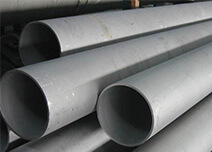- SITEMAP
- CONTACT US
- 8618267732328
News
Credibility ,the lifeblood of enterprise!
- Fittings
- Butt Welding Fittings
- Forged Fittings
- 180 Degree Elbows
- 90 Degree Elbows
- 60 Degree Elbows
- 45 Degree Elbows
- 30 Degree Elbows
- Equal Tee
- Reducing Tee
- Concentric Reducer
- Eccentric Reducer
- Lap Joint Stub End
- Outlets
- Cap
- Bend
- Cross
- Coupling
- Stainless Steel Lateral Tee
- Bellows Expansion Joints
- Flexible Metal Hose
- Non-Standard/Custom Fittings
- Bleed & Flushing Rings
- Types of Flanges
- Anchor Flanges
- Blind Flanges
- Expander Flanges
- High Hub Flanges
- Lap Joint Flanges
- Long Weld Neck Flanges
- Nipoflanges
- Orifice Flanges
- Plate Flanges
- Ring Type Joint Flanges
- Reducing Flanges
- Slip On Flanges
- Socket Weld Flanges
- Spectacle Blind Flanges
- Square Flanges
- Spades & Ring Spacers
- Threaded Flanges
- Welding Neck Flanges
Chloride Stress Corrosion Cracking (Stainless Steel) By yaang.com
Two types of SCC are of major concern to a nuclear facility.
Chloride Stress Corrosion Cracking (Stainless Steel)
The three conditions that must be present for chloride stress corrosion to occur are as follows. Chloride ions are present in the environment Dissolved oxygen is present in the environment Metal is under tensile stress Austenitic stainless steel is a non-magnetic alloy consisting of iron, chromium, and nickel, with a low carbon content. This alloy is highly corrosion resistant and has desirable mechanical properties. One type of corrosion which can attack austenitic stainless steel is chloride stress corrosion. Chloride stress corrosion is a type of intergranular corrosion.
Chloride stress corrosion involves selective attack of the metal along grain boundaries. In the formation of the stainless steel, a chromium-rich carbide precipitates at the grain boundaries leaving these areas low in protective chromium, and thereby, susceptible to attack. It has been found that this is closely associated with certain heat treatment resulting from welding. This can be minimized considerably by proper annealing processes.
This form of corrosion is controlled by maintaining low chloride ion and oxygen content in the environment and the use of lowcarbon stainless steel. Environments containing dissolved oxygen and chloride ions can readily be created in auxiliary water systems. Chloride ions can enter these systems via leaks in condenser or at other locations where auxiliary systems associated with the nuclear facility are cooled by unpurified cooling water. Dissolved oxygen can readily enter these systems with feed and makeup water. Thus, chloride stress corrosion cracking is of concern, and controls must be used to prevent its occurrence.
Source: Yaang Pipe Industry Co., Limited (www.yaang.com)

Tel No:+86-18267732328 / Email:[email protected]
Address:Longwan District, Wenzhou, Zhejiang Province, China.
Copyright Notice © www.yaang.com Yaang Pipe Industry Co., Limited All rights reserved.
Yaang Pipe Industry Co., Ltd. is an international supplier of piping solutions for flange, butt welding fittings, socket welding fittings and threaded fittings. Our products are widely used in different industrial fields, including oil and gas, chemical industry, petrochemical industry, power plant, pulp and paper industry, environmental and water conservancy engineering, engineering projects, etc.





